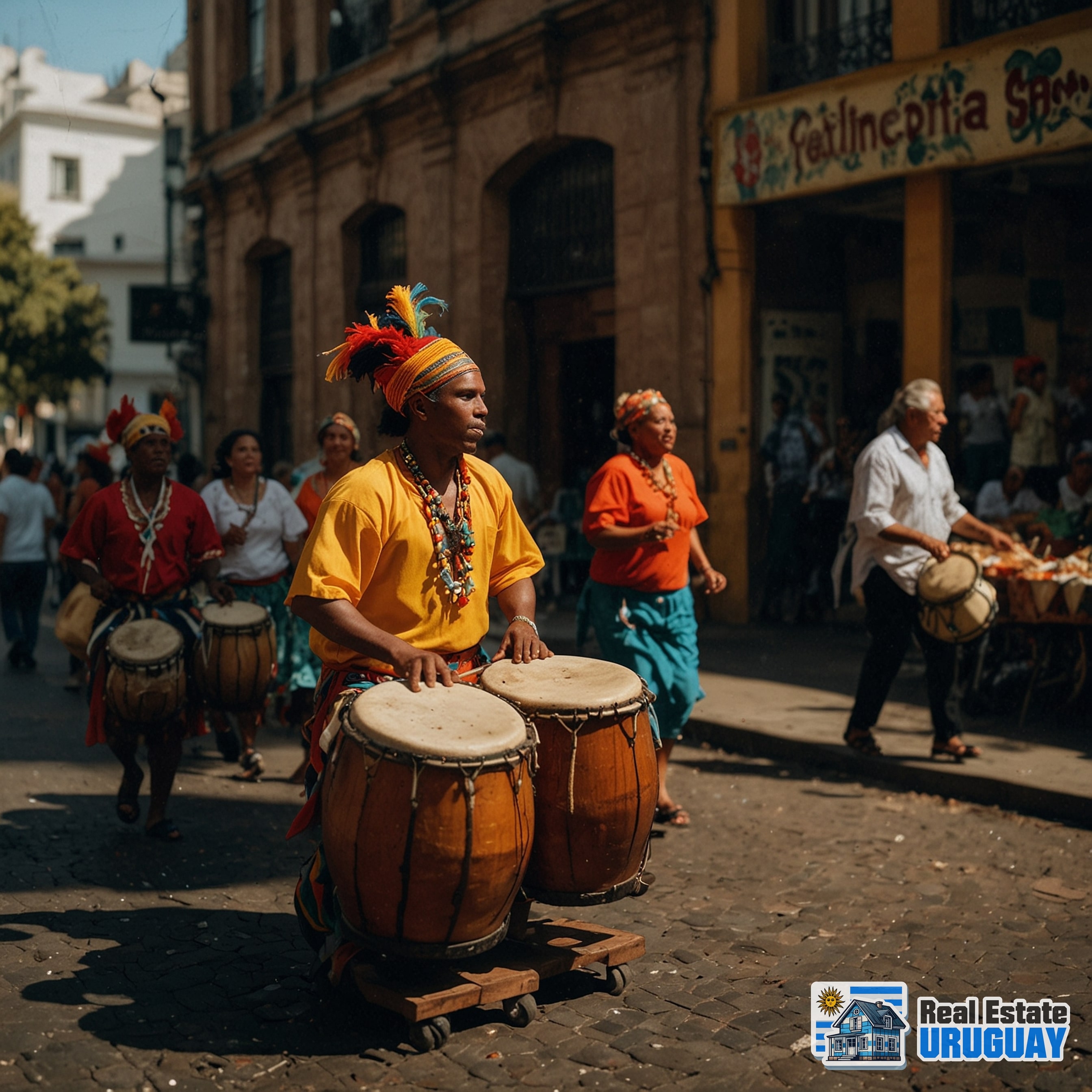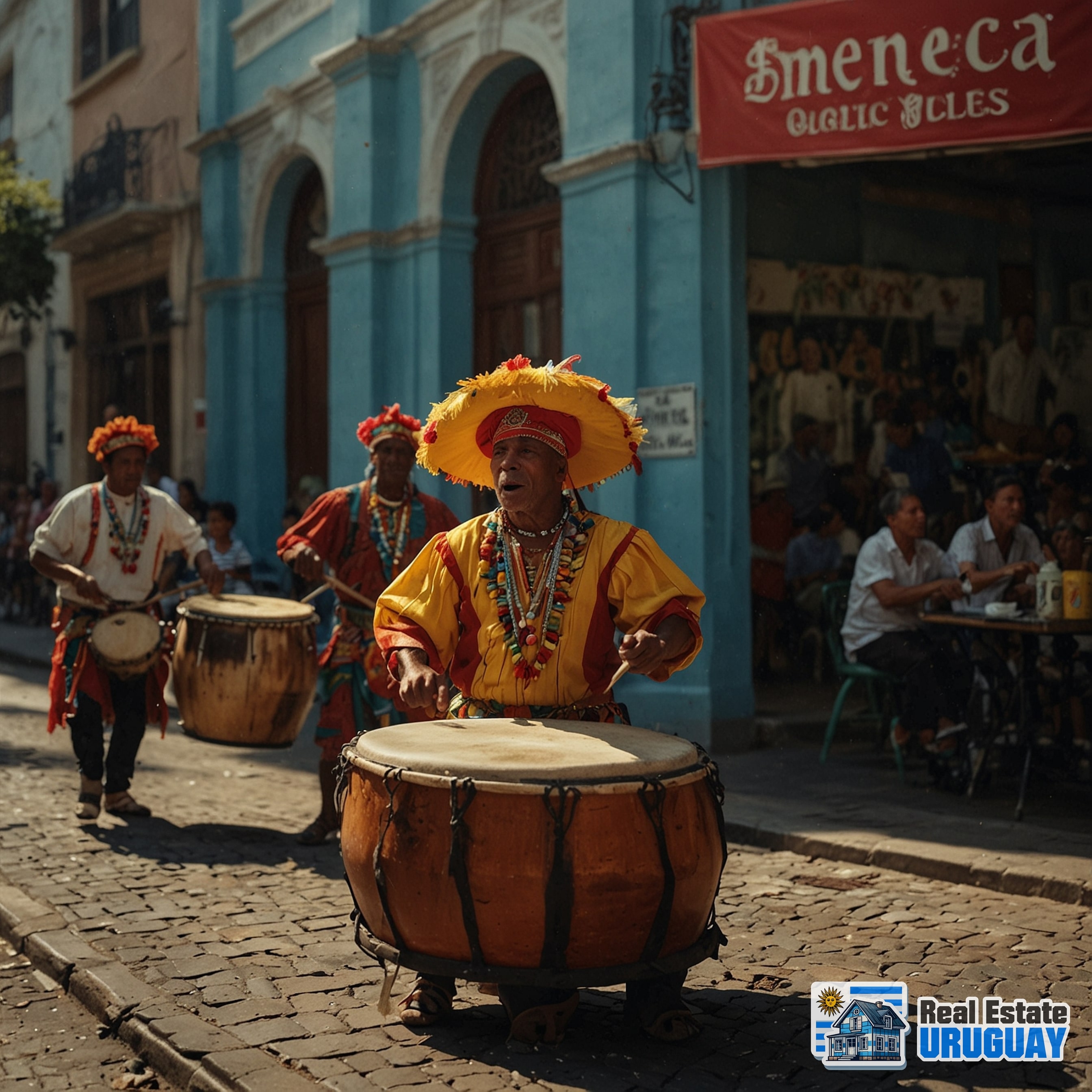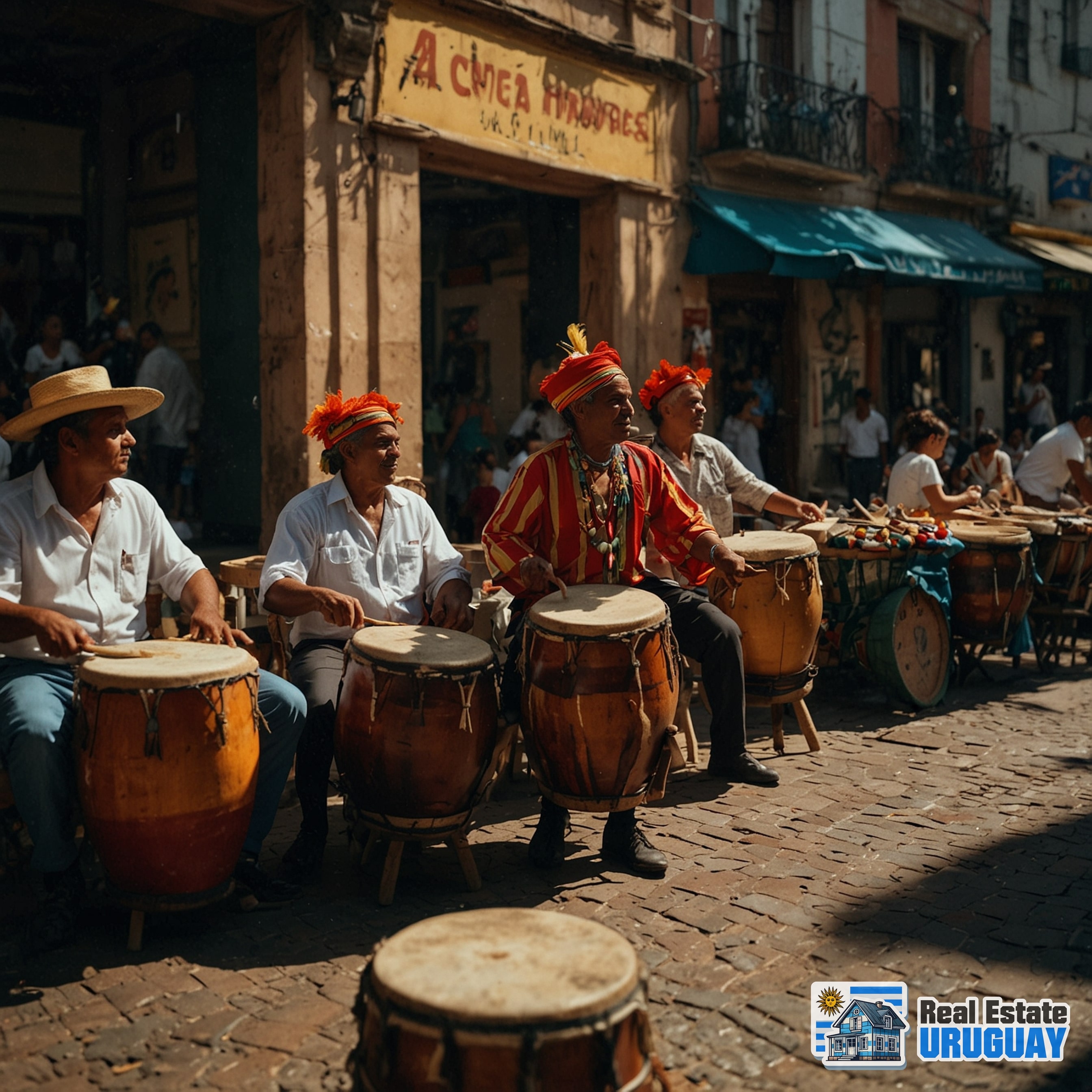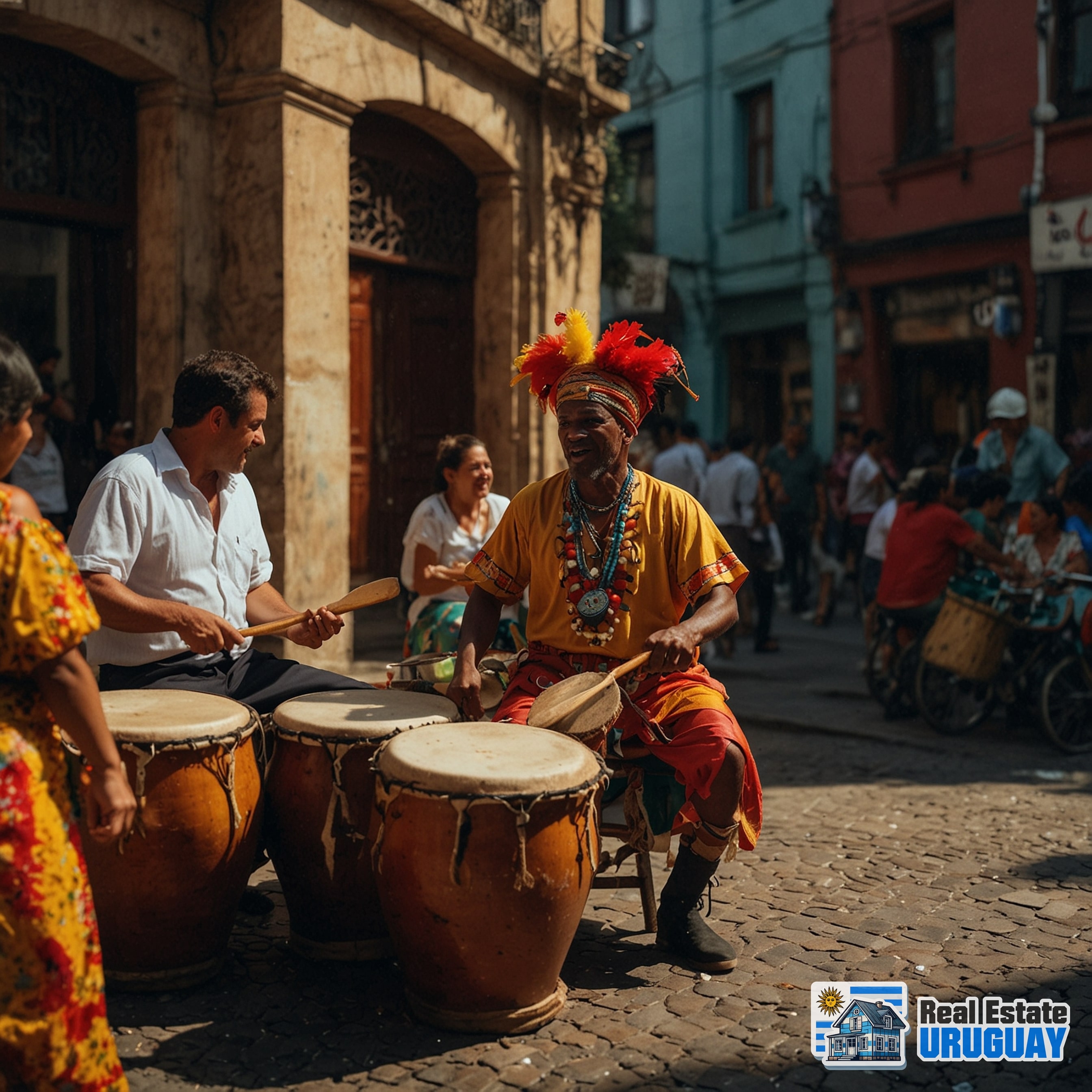Often overlooked in comparison to its larger South American neighbours, Uruguay reveals a cultural mosaic well worth exploring. The rhythmic beats of candombe echo the African roots of its people, while the passionate steps of tango, born from a blend of European and African influences, showcase Uruguay’s artistic richness. Iconic landmarks such as the Punta del Este Hand Sculpture and the historic Solís Theatre demonstrate Uruguay’s commitment to preserving its vibrant cultural identity.
This small nation maintains a dynamic cultural landscape by celebrating its diverse heritage. From the bustling markets to the tranquil countryside, Uruguay’s traditions and history are palpable, offering a unique experience for those willing to delve into its cultural depths.
Geographical wonders
Nestled between Argentina and Brazil, Uruguay often captivates travellers with its diverse and picturesque landscapes. From the rolling hills of the Cuchilla Grande to the vast stretches of unspoilt coastline, the country’s natural wonders offer a scenic escape. The Uruguay River, an important natural boundary, forms the western edge of Uruguay, fostering a unique ecological system. The river not only separates Uruguay from Argentina, but also enriches the region with lush wetlands and biodiversity. The eastern coastline along the Atlantic Ocean offers stunning beaches and coastal beauty, making Uruguay an attractive destination for nature lovers. Uruguay’s varied topography, marked by river borders and natural wonders, underscores its geographical wonders, inviting exploration and admiration by visitors from around the world.
Demographic Highlights
How does Uruguay’s distinctive demographic profile shape its social landscape? Uruguay’s population trends reveal a rapidly ageing society, the oldest in South America, driven by low birth rates and high life expectancy. This demographic shift poses significant challenges, particularly in the area of elderly care. The government, faced with the need for strong social support systems, is under pressure to improve health services and provide adequate resources for an ageing population. With a life expectancy of around 77 years, Uruguay must prioritise sustainable solutions to maintain the quality of life of its elderly citizens. The strain on healthcare infrastructure and social services underscores the urgency for forward-looking policies and holistic strategies to address the evolving needs of its demographic reality.

Uruguay’s population trends reveal a unique demographic profile characterised by a rapidly ageing society. As the oldest population in South America, this shift is driven by low fertility rates and high life expectancy, currently around 77 years. These changes present significant challenges, particularly in providing adequate care for the elderly.
The government is under increasing pressure to improve health services and resources to support this growing segment of the population. Ensuring a high quality of life for older citizens requires prioritising sustainable solutions. This demographic reality calls for forward-looking policies and comprehensive strategies to meet the evolving needs of the population.
The strain on healthcare infrastructure and social services underlines the urgency of innovative and holistic approaches. With a clear focus on sustainability, Uruguay can develop effective support systems to meet the demands of its ageing society.
Musical heritage
Uruguay’s musical heritage is a diverse and rich blend of influences that reflect the country’s vibrant cultural history. At the heart of this heritage are rhythmic melodies, which have deep historical significance. The country’s musical landscape is deeply rooted in African influences brought by enslaved people, which have shaped many traditional rhythms.
Candombe, with its compelling drumming and syncopated beats, is a prime example of this African legacy. The genre’s unique sound is deeply embedded in the nation’s cultural fabric. The evolution of tango in Uruguay also shows a fusion of European and African elements, resulting in a distinctive soundscape that is both evocative and deeply rooted in history.
These musical forms go beyond mere artistic expression. They serve as cultural narratives that preserve and celebrate the nation’s complex past. In this way, Uruguay’s music affirms its enduring and diverse identity and offers a window into the soul of the country.
Dance traditions
Uruguay’s dance traditions are steeped in a rich musical heritage, reflecting a vibrant tapestry of cultural influences and historical depth. At the heart of these traditions is candombe, the national dance. This dance exemplifies the fusion of African heritage through its rhythmic drumming and spirited movements. Originating from the enslaved Africans brought to Uruguay, candombe has significant historical value as a symbol of resilience and cultural preservation.

Another cornerstone of Uruguayan dance is the tango. While sharing roots with neighbouring Argentina, Uruguayan tango has distinct elements that highlight the country’s unique cultural history. These dance traditions are much more than mere performances; they are living expressions of Uruguay’s history. They embody a deep connection to the past and a dynamic celebration of the nation’s diverse cultural identity.
Iconic landmarks
Among Uruguay’s iconic landmarks, the Punta del Este Hand Sculpture stands as a testament to the country’s artistic spirit and coastal beauty. Officially known as ‘La Mano’, this striking work of art rises from the sands of the Brava beach and captivates visitors with its impressive scale.
Uruguay also has architectural wonders that reveal its rich heritage. Montevideo’s Solís Theatre, with its neoclassical design, offers a window into the country’s cultural past. Colonia del Sacramento, a UNESCO World Heritage Site, is full of historical significance with its cobbled streets and colonial architecture.
These landmarks, each with its own artistic interpretation and historical background, capture the essence of Uruguay’s cultural and coastal appeal.
Culinary delights
Uruguay’s culinary scene is a treasure trove of flavours that reflect the country’s diverse cultural heritage. This South American gem offers traditional flavours and culinary experiences that stem from a rich history of cultural fusion.
Take the chivito, for example. This hearty steak sandwich is a staple of Uruguayan cuisine and offers a taste of the country’s culinary ingenuity. On Gnocchi Day, a popular tradition, families gather to enjoy homemade gnocchi, a nod to the Italian influence that has shaped much of Uruguay’s food culture.
The country’s culinary landscape is a harmonious blend of Spanish, Italian and indigenous influences. These diverse roots result in a vibrant array of dishes that captivate locals and visitors alike. Each meal serves as a journey through Uruguay’s history and traditions, making every bite an exploration of its unique, flavourful history.
Beef consumption
Uruguay is renowned for its high per capita beef consumption, a testament to the country’s rich culinary traditions and agricultural heritage. The meat industry plays an important role in the Uruguayan economy and has a strong influence on dietary habits and cultural practices. Traditional dishes such as the popular asado, a communal barbecue, highlight the central role of beef in Uruguayan cuisine. This practice not only demonstrates the country’s expertise in meat preparation, but also strengthens community ties.

The focus on quality and sustainability in the meat industry further underlines its importance. Uruguay’s commitment to beef consumption is unwavering, symbolising both a culinary identity and an economic mainstay that remains strong amidst evolving dietary trends.
A passion for sport
Uruguay’s passion for football is more than just a pastime; it is a national passion that unites communities and inspires pride. This enthusiasm for the sport is deeply ingrained in the nation’s identity and highlights Uruguay’s athletic prowess on the world stage. The country’s sporting heroes, such as Diego Forlán and Luis Suárez, are celebrated symbols of national pride, inspiring younger generations to strive for excellence. Uruguay’s historic achievements, including hosting and winning the inaugural World Cup in 1930, cement its footballing legacy. Clubs such as Nacional and Peñarol fuel this passion with their fierce rivalries and dedicated fan bases. In Uruguay, football is more than a sport; it is a testament to resilience, unity and national pride.
Progressive politics
Uruguay is known for its progressive approach to social policy, particularly in areas such as LGBTQ rights and environmental sustainability. The country made significant progress in 2013 by legalising gay marriage, becoming one of the first countries in Latin America to do so. This move fostered a welcoming environment for LGBTQ people.
In terms of environmental sustainability, Uruguay excels in generating nearly 100% of its electricity from renewable sources such as wind and hydroelectric power. This commitment not only reduces carbon emissions, but also attracts foreign investment and strengthens the economy. Uruguay’s social inclusion and clean energy initiatives underscore its role as a forward-thinking nation committed to promoting both inclusivity and environmental responsibility.
Environmental leadership
Uruguay stands out for its environmental leadership, prioritising renewable energy and sustainable practices. The nation’s commitment to green initiatives is clear, with nearly 100% of its electricity coming from renewable sources such as wind, solar and hydroelectric power. This small but powerful country is determined to combat climate change and is setting a remarkable example for others.
The government is actively promoting policies that support sustainable development, with a focus on reducing carbon emissions and preserving biodiversity. Uruguay’s approach to environmental stewardship benefits its citizens and contributes positively to global ecological health. This commitment to sustainability reflects a national ethos deeply rooted in respect for the environment.
Educational Excellence
Uruguay excels in education through a robust public system that is both compulsory and free, ensuring high literacy rates and inclusive learning opportunities for all citizens. The country’s commitment to academic success is evident in its comprehensive curriculum and diverse programmes that enrich students’ experiences.
Schools and universities across Uruguay offer a variety of opportunities for academic pursuits, fostering a community of lifelong learners. Cultural programmes integrated into the educational framework highlight the country’s rich heritage and deepen students’ understanding of their roots. These initiatives promote both academic growth and a deep appreciation of cultural diversity, positioning Uruguay as a leader in progressive and inclusive education.
Healthcare Dynamics
Faced with the complexities of an ageing population, Uruguay’s healthcare system is adapting to meet the evolving needs of its citizens through forward-thinking policies and improved social support structures. The country faces significant challenges in caring for the elderly due to low birth rates and increasing life expectancy. To address these issues, Uruguay has established comprehensive social support mechanisms to ensure that the elderly receive adequate care and resources. These include access to quality health services, financial assistance and community-based programmes that focus on promoting well-being. The government’s commitment to sustainable agriculture and environmental protection also plays a role in supporting public health.

Despite these efforts, continuous improvement and innovation in health policy is needed to effectively meet the growing needs of the ageing population.
